If You Fail an Interview Can You Apply Again Cscareerquestions
I interviewed at 6 top companies in Silicon Valley in half-dozen days, and stumbled into six job offers

In the six days* from Baronial 13th to August 20th, 2018, I interviewed at LinkedIn, Yelp, Apple, Amazon, Facebook, and Google and got all half dozen job offers.
Edit: follow-upwardly postal service (with the $ offered) posted here ! Follow my Twitter for hereafter updates :) Levels.fyi now offers a professional negotiation service if you're looking for assist from bodily recruiters (I've attached my chapter link).
All of the below is heavily inspired by this post from last year that originally pushed me to consider the possibility of moving companies. I didn't want to fly across the country repeatedly to notice my perfect job, so I knew I had to schedule them aslope each other and gut information technology out.
While the roles I was specifically pursuing were mobile positions, the study approach, tips, and recommendations should be universal.
Hopefully, I can inspire people that were in the same spot as me — not 100% happy with piece of work, dreaming of life in the Bay, just lacking severely on the "study prep" front — to just get for information technology and run into what the future brings their way.
Introduction & Statistics

I knew I wanted a job in the Bay Area where I could really grow from a mobile perspective at a larger visitor. I've worked at startups earlier and I've loved it, but for a few reasons, I was looking at the big fish this go-around (in terms of valuation, not strictly team size). I likewise knew that I wasn't positive where I wanted to work or how much compensation I'd need to match what I'one thousand making now. I besides knew I didn't want to apply to 100+ places like I did when I was graduating from college.
All told, I practical to 20 companies. I was explicitly rejected by 4 of those companies (Reddit, Nest, Stripe, Uber) afterwards applying. Of the remaining 16, x companies never responded to me either way (Lyft, Airbnb, Dropbox, Instagram, YouTube, Square, Robinhood, Twitter, Snap, Slack). Math dictates 6 companies followed up with a recruiter screen. Of those half-dozen companies, I was able to get telephone screens with 6, onsites with 6, and offers from 6.
Reviewing my Google Agenda, I believe I had (approximately):
- 7 recruiter screens in x days
- seven technical screens in 11 days
- 29 onsite interviews in 8 days
- three follow-up phone interviews
Adding up the above says I had 46 interviews in 73 days (including gaps between each step). It was exhausting and information technology meant that most of my tiffin breaks were merely interviews for multiple weeks. I had to start going into work very early on so I could go out earlier to accept calls at home. Making sure I was withal meeting all of my commitments at work was a challenge, also, but I made sure to prioritize that over interviewing, rescheduling when necessary. I wouldn't phone it in for the purposes of interviewing. Information technology makes you wait bad, it's unethical, and if you lot don't get a chore, you lot're now a lower performer.
The Companies, in order
LinkedIn (Sunnyvale, CA)
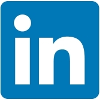
LinkedIn's mobile apps are actually pretty slick and they have some solid contributions to the open source community. I was very impressed throughout the entire interview process with LinkedIn from both a culture perspective and an engineering perspective. They rose the highest on my mental list of iOS Prestige™ from the start of the procedure until the terminate.
Yelp (San Francisco, CA)
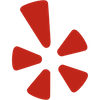
Yelp has a really beautiful app with tons of iOS subtleties that show an understanding of the platform. I loved the vibe onsite. They take a cute building and I'd love to work with whatever of my interviewers. They're much smaller than any of the other companies I applied to and it showed in all of the practiced ways. It seemed very tight knit and the process moved fast.
Apple (Cupertino, CA)
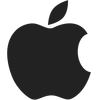
Apple's been an important part of iOS for a while (har har). I grew upwards an extreme Apple fanboy (since the historic period of 12, at to the lowest degree). The Mac originally got me into programming. The iPhone SDK encouraged me to build and transport my first app. Information technology was absolutely surreal to have them invite me onsite and later extend me an offer. I don't know what else at that place is to say on that front end.
Amazon (Palo Alto, CA)
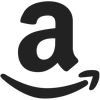
I wouldn't consider Amazon a "mobile-first" every bit a company (at all). This position/team, though, met the criteria I laid out to start. I wasn't in dearest with the Palo Alto building I was in specifically, but information technology'south a temporary office until they move into a more Amazon-y building, then information technology's mostly poor interview timing on that forepart. The people I spoke to seemed pretty dedicated to their product. Although every company loved telling me that "it really feels like a startup!", it rang the truest at Amazon.
Facebook (Menlo Park, CA)

I interviewed Facebook's newest building. I thought it was really absurd overall, although I'm somewhat hazy on the details almost how the interview itself went because I was on my fifth consecutive day of interviewing with inadequate sleep. I practice remember actually enjoying the people I spoke with and having a very insightful lunch interview.
Google (Mount View, CA)
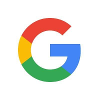
Google, to my understanding, does pretty "generic" interviews for a given role. I spoke to a lot of members from ane of Google's biggest products on iOS, but I wasn't interviewing for a position specifically with that team. Later on I passed through Google's hiring commission I moved on to the team matching stage and ultimately matched up with a team. It's a very loooooong process relative to the residual of the companies I spoke with, so I definitely had to keep everyone updated on where Google was. I also had to allow Google know where I was with everyone else.
Written report Program
To be clear, I was starting from a position where I could probably do virtually Leetcode Easy problems in ~30 minutes, and I could maybe solve 25% of Leetcode Medium problems with infinite time. Solving Leetcode Hard problems were akin to trying to solve P=NP. In short, I had a big gap to bridge.
To report algorithms I began commencement with Cracking the Coding Interview. On Sunday mornings I'd wake upward and go to a coffee shop and grind out some problems in Objective-C. Once I did plenty problems in CtCI (I recall I solved ~35 problems) I would review a scattering of Leetcode bug in the chapters I'd gone over. Later a few weeks of this, I felt I had "the basics" down and moved on to my next phase.
With the basics down, I moved on to Elements of Programming Interviews. This volume is considerably more than difficult than CtCI. The book has recommended study plans that I stuck pretty closely with. I think in that location was 1 that planned on four weeks of studying and I got through almost all of it. It is critical, in my opinion, to either whiteboard problems with someone or mock a phone interview with someone. Not critical as in "very important", but disquisitional equally in you should consider it an absolute requirement when studying. I'grand sure you can go a job without information technology, merely information technology's the single best course of practice I had.
If anyone wants to mock phone interviews for iOS I'd be happy to help out — you may be able to find me on CS Career Hackers and perhaps we tin piece of work something out, time permitting. If not me, there are plenty of others there willing to help out. It'll be awkward. That'southward the betoken. If it were natural you wouldn't need to practice it, would you? If yous offset practicing on the phone or on a whiteboard and it'due south embarrassing or awkward, it's a sign you're doing exactly what you should be: practicing. Information technology was pretty awkward for me until it wasn't, and the practice absolutely paid off.
After about a calendar month of consistently practicing bug each day (perhaps 2–three hours/day, more than on weekends) I moved on to doing primarily Leetcode's "Top Interview Questions". I didn't do them all only I did "plenty". The central to preparing algorithm interviews is to get yourself to a point that you can effigy out a problem during the interview, not necessarily to know how to do every trouble. That's impossible. Nearly all of the questions I heard over my calendar week of onsites were "new" to me yet similar to questions I'd seen. That's how virtually development goes in the industry, besides. Y'all have a lot of similar problems but your particular employ example has special constraints.
Lessons Learned
I'thousand going to present a bunch of lessons I learned equally bullet points in no particular social club. Everything listed below is something I wish I knew beforehand, both in terms of preparation on the technical side and in terms of scheduling and other non-technical tips. These lessons are non iOS-specific and I'd imagine are more often than not applicable to all interviews in our industry.
- 📚 Stick with information technology. When I was looking for a job out of school I gave upward after one or two weeks of studying. I reasoned that I simply was not cut out to learn the stuff. There was minimal progress from when I first started for weeks, so what was the bespeak of wasting any more than time? This fourth dimension effectually, I figured I didn't accept a choice. Somewhen, things started falling into place. It'south a lot of work, but the willingness to learn is what separates successful candidates from the residue.
- 🤓 Do is almost everything. Yous certainly need a baseline of innate ability, just practice (i.e. learning) tin can fill in very wide ability gaps. Companies don't hire people based on the noesis they were born with. They hire those that tin can perform their duties and perform them well, regardless of where/when they cultivated the knowledge.
- 👫 Practicing with a friend is everything else. Whether on a whiteboard or on something like Codeshare, simulating an interview environment with someone over a flow of fourth dimension takes a lot of the scariness out of interviews. You lot get over the awkwardness of verbalizing something totally stupid to someone because your brain slipped. The best is if you can make sure someone understands a problem you oasis't seen earlier, equally they can give y'all hints to push you toward a solution. Seriously, that kind of exercise is invaluable.
- 📊 It's a numbers game. You lot can exercise — effectively, fifty-fifty — and non land a job considering the right person didn't see your resumé or you only didn't see a solution to a whiteboard trouble in time. The best you tin can hope to do is maximize your odds. This means applying everywhere y'all would similar to work and fit a task req and not just your top choice. I applied for my tiptop 20!
- 🤔 Focus on the problem solving, not the solution. Memorization isn't enough. Of ~20 algorithm issues I saw in a week I had seen perhaps i of the problems before (and I allow my interviewer know, though many would disagree with that choice). I just saw lots of mutual patterns and I was able to come up up with solutions on the fly.
- 😣 Don't go discouraged. There were multiple interviews I had where I didn't know the solution and interviewers had to shepherd me towards a solution. I still got offers from everywhere I interviewed. Also, I felt I absolutely bombed ane of my interviews (4 of my five that twenty-four hour period I thought were solid "no hires") and the company later on extended me an offer. Anything can happen, apparently. :)
- 🤯 Don't be quick to disregard problems. At that place were multiple times I was practicing with a friend of mine and he shrugged off particularly difficult problems as pointless to know. Curiously enough, of the four types of problems I recall him saying would "never" come upward, two of them did. Non in the exact form nosotros were going to exercise, but very similar. If your practice shows a certain concept come up frequently, acquire it.
- 🧐 Don't underestimate the importance of behavioral questions. I think I enjoyed a lot of success because my (honest) answers were what companies wanted. It'southward my theory that many developers have potent technical skills and notwithstanding struggle to notice their perfect job because they're rude, dishonest, or uncomfortable speaking to people exterior of a technical setting. These are all justifiable reasons to decline a candidate, in my opinion. Exercise them just as you would technical questions.
- 🧠 If you know more, evidence it. At that place were multiple examples during my onsites where I would respond a question and mention some other knowledge I had but explicate that I didn't have fourth dimension in an interview to fully implement that solution. Answering a question about strings? Prove off your Unicode noesis with your solution or explicate how to back up Unicode. Implementing a private method? Talk almost the Objective-C conventions for methods. Updating a tabular array view? Talk about the dissimilar animations you can support. Don't bring something up if you can't talk all nigh it, but if you tin, it allows y'all to bear witness knowledge exterior of the narrow window provided by the question and gives yous a leg up on anyone that sticks strictly to the beaten path.
- 💪 Don't strive to clear the bar, strive to set up information technology. Interview performance plain helps decide if you become an offer from a given company, but it besides helps decide what that offering looks like. If you get to a betoken where y'all call back you lot know enough to get an offer, that's great. But keep in heed in that location's a big deviation between "barely good enough" and "absolutely good enough". Strive for the latter! My initial (i.e. not negotiated) offers came in pretty solid despite my relative lack of experience and I believe interview performance played a big role.
Wrap-Up
And then that's that! It was a crazy ride and I have no regrets. I truly, genuinely hope that the above tin can help someone get over the hump when information technology comes to landing a chore they've dreamed about. If at that place'south particular interest in iOS-specific assist, I tin can publish some tips, so please comment and permit me know.
If it's of any use: I was interviewing for my second job out of higher with about two and a half years of experience without any particularly notable internships or employers on my resume; I went to a very pocket-size school that had nil known software companies at their "career fair"; I started preparing in late Apr and started applying in June/July; and, lastly, a few months in, my task is everything I could have possibly dreamed of.
I'd like to shout out the CS Career Hackers community i last time. If you lot're looking for a identify to practice and talk with others in like situations (or those that have been through information technology on either side), please do check it out. 👍 I didn't find information technology until a few months after I signed my offer, but it'due south a great identify nevertheless.
Happy studying, everyone!
- ok, technically, it was six weekdays and 8 days; no, I didn't interview on a Saturday :)
Source: https://bayareabelletrist.medium.com/i-interviewed-at-six-top-companies-in-silicon-valley-in-six-days-and-stumbled-into-six-job-offers-fe9cc7bbc996
0 Response to "If You Fail an Interview Can You Apply Again Cscareerquestions"
Post a Comment